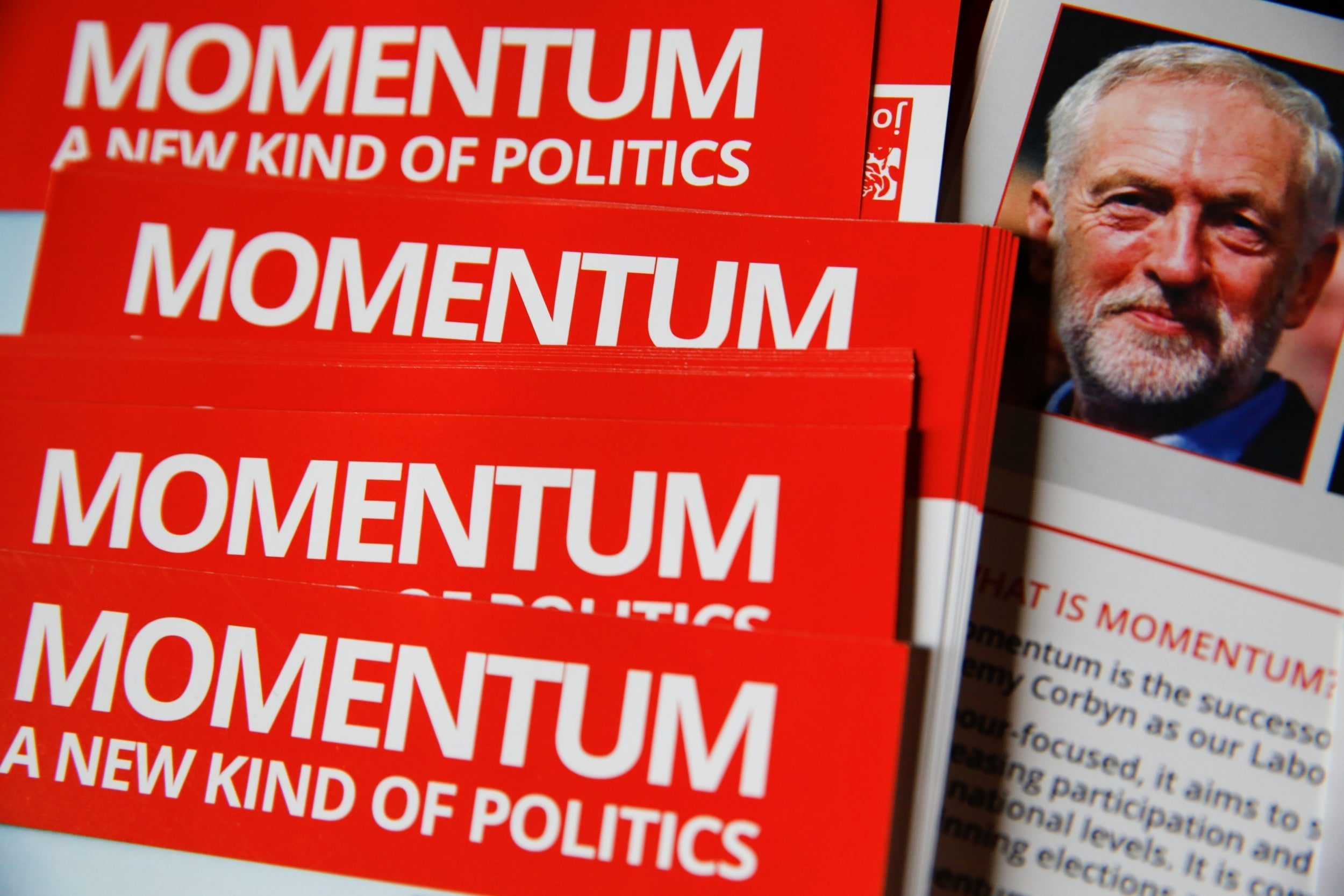What does Momentum’s backing for Rebecca Long-Bailey mean for her leadership hopes?
The endorsement of the Corbyn-supporting group is worth more than the numerical total of its members’ votes, writes John Rentoul


Momentum, the group of Jeremy Corbyn supporters in the Labour Party, has declared Rebecca Long-Bailey its favoured candidate for the leadership.
This is an important boost for her campaign, but hardly decisive and certainly not unexpected. Momentum is not as powerful as it once was. It was formed in the wake of Corbyn’s election as leader in 2015 by Jon Lansman, who ran that campaign, and who had an email database of its supporters.
For the past four years, Momentum has dominated the internal democracy of the party, running a slate of candidates for those National Executive Committee places that are elected by Labour members.
However, the numbers mobilised behind Momentum-backed candidates have fallen dramatically, and although Momentum is easily the biggest faction among party members, with 40,000, it is only about one tenth of the total membership – a number that is probably climbing back towards 500,000 as people rush to join so that they can vote in the leadership election.
There is some independent evidence of Momentum’s strength: the YouGov survey of Labour members carried out last month for Professor Tim Bale of Queen Mary University of London found that 12 per cent of members said they were also members of Momentum.
Prof Bale’s survey confirmed that Long-Bailey is the favoured candidate of Momentum members. It found that 52 per cent of them had her as their first-preference candidate for leader, and only 15 per cent had Keir Starmer, with the other candidates in single figures. (The sub-sample of Momentum members was small, just 165 out of 1,353, but the basic shape of the contest is clear.)
So it was no surprise that Momentum members followed the recommendation of its 16-member ruling body, the National Coordinating Group (NCG), that they should support Long-Bailey. In an online ballot announced on Thursday, about 7,000 members of Momentum (a lower than 20 per cent turnout) voted by 70 per cent to endorse her.
What was a surprise was that the NCG went for such a patronising exercise in “guided democracy” – offering members the chance only to vote “yes” or “no” to the recommendation, rather than giving them the full range of candidates to choose from.
This device nearly stopped Momentum endorsing Angela Rayner for deputy leader, as those taking part in the ballot voted “yes” to her by only 52 per cent – Rayner has cut a more independent figure, daring even to praise Tony Blair by name.
This wheels-within-wheels democracy gives Lansman, chair of the NCG, a way of gearing up his preference for Long-Bailey. First he got a majority of the 16-member NCG to vote for her, then a majority of the 7,000 activists who took part in the ballot, and now Momentum will throw its organising weight behind Long-Bailey’s campaign – to which Lansman is an adviser.
Momentum’s endorsement is worth more than its 12 per cent of Labour membership, not least because it has activists – on the ground and online – who will help to sign up new members by the deadline of 5pm on Monday. But Momentum is not the only group trying to organise new members, and many of those who left the party because of Corbyn are now rejoining in order to vote against his supporters’ preferred successor.
No one knows who is winning that battle, or indeed the battle for the support of existing members. (Or of supporters who sign up through their trade union – although they voted roughly in line with members last time.) YouGov has a good track record of polls of Labour members, and found Starmer well ahead of Long-Bailey; while a survey of subscribers to the Labour List website this week suggested that Long-Bailey was just ahead. That survey was weighted by Survation, the opinion poll company, to match the demographic profile of Labour members, but was probably still biased towards Corbynite activists.
The best guess must be that Starmer has the advantage, but that Long-Bailey could out-organise him – and that Lisa Nandy and Jess Phillips cannot yet be totally ruled out.
Join our commenting forum
Join thought-provoking conversations, follow other Independent readers and see their replies
Comments